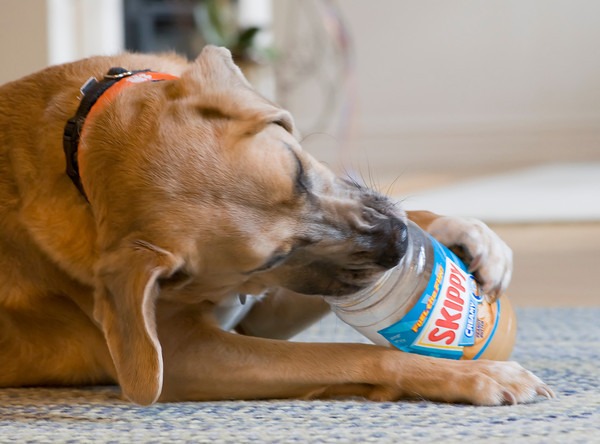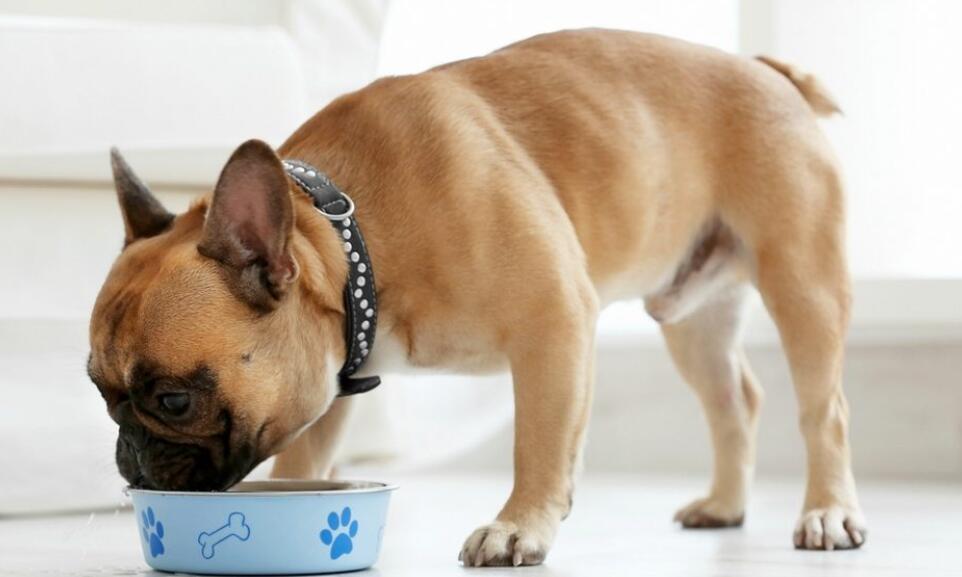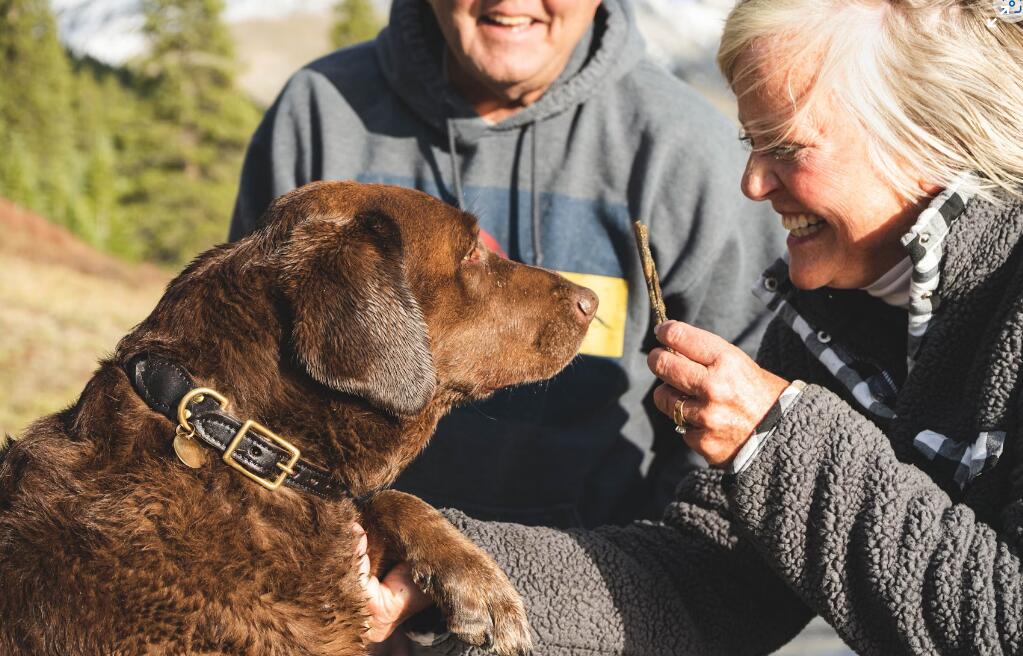Peanut butter is a popular and tasty treat enjoyed by many people, but can dogs safely indulge in this creamy spread? As a responsible pet owner, it’s crucial to understand whether dogs can be allergic to peanut butter and how to manage any potential allergies. This article will explore the topic of peanut butter allergies in dogs, including the causes, symptoms, and management strategies.
Understanding Allergies in Dogs
Allergies are the result of an overactive immune response to a specific substance, known as an allergen. Common types of allergies in dogs include environmental allergies (such as pollen or dust mites), flea allergies, and food allergies.
Food allergies in dogs occur when their immune system reacts negatively to certain ingredients in their diet. These allergies can manifest in various ways, including gastrointestinal issues, skin problems, and respiratory symptoms. Identifying and managing food allergies is essential for maintaining your dog’s overall health and well-being.
Peanut Butter and its Ingredients
Peanut butter is a popular and versatile spread made primarily from peanuts. While the main ingredient is peanuts, there are other components that can be found in peanut butter products. Here are some key points about peanut butter and its ingredients:
1. Peanuts
Peanuts are the primary ingredient in peanut butter. They provide the rich flavor and creamy texture that make peanut butter so delicious.
2. Salt
Some peanut butter varieties contain added salt for flavor enhancement. It’s important to note that excessive salt intake can be harmful to dogs, so it’s generally recommended to choose unsalted peanut butter for your furry friend.
3. Sugar
Certain brands of peanut butter may include added sugar to enhance sweetness. However, it’s best to avoid peanut butter with added sugars when feeding it to your dog, as excessive sugar consumption can lead to weight gain and other health issues.
4. Hydrogenated Oils
In some commercial peanut butter products, hydrogenated oils may be added to prevent oil separation and improve shelf life. However, these types of oils can be high in trans fats, which are not beneficial for dogs. Opting for natural peanut butter without hydrogenated oils is a healthier choice.
5. Additives and Stabilizers
Some peanut butter brands may include additional additives and stabilizers to enhance texture or extend shelf life. It’s generally recommended to choose peanut butter with minimal ingredients and no unnecessary additives.
Can Dogs Be Allergic to Peanut Butter?
Yes, dogs can be allergic to peanut butter. While peanut allergies are relatively rare in dogs compared to other food allergies, they can still occur. Just like humans, dogs can develop an allergic reaction to peanuts or peanut butter, leading to various symptoms.
The symptoms of a peanut butter allergy in dogs can include itching, scratching, redness or inflammation of the skin, gastrointestinal issues (such as vomiting or diarrhea), swelling (particularly around the face and throat), and difficulty breathing or wheezing.
It’s important to note that the severity of the allergic reaction can vary from mild to severe, and in some cases, it can be life-threatening. If you suspect that your dog may be allergic to peanut butter, it’s crucial to consult with your veterinarian for a proper diagnosis and guidance.
Causes of Peanut Butter Allergies in Dogs
The exact causes of peanut butter allergies in dogs are not fully understood, but allergies in general occur when the immune system overreacts to a specific substance. Here are some potential causes of peanut butter allergies in dogs:
1. Genetic Predisposition
Some dogs may have a genetic predisposition to developing allergies, including peanut allergies. Certain breeds, such as Labrador Retrievers, Boxers, and Bulldogs, are more prone to food allergies.
2. Sensitization
Dogs can develop allergies over time through repeated exposure to allergens. If a dog is repeatedly exposed to peanuts or peanut butter and their immune system becomes sensitized, it can lead to the development of an allergic response.
3. Proteins in Peanuts
Peanuts contain proteins that can trigger an allergic reaction in susceptible individuals. These proteins, such as Ara h1, Ara h2, and Ara h3, are potential allergens that can cause an immune response in some dogs.
4. Cross-Reactivity
Dogs with existing allergies to other substances, such as tree nuts or grass pollens, may be more prone to developing an allergic reaction to peanuts or peanut butter. This cross-reactivity occurs when the immune system recognizes similar proteins in different allergens and reacts to them.

Is Peanut Butter Safe for Your Dogs to Eat?
Peanut butter can be safe for dogs to eat, but it’s important to choose the right type and feed it in moderation. Plain, unsalted peanut butter made from 100% peanuts or peanuts and salt is generally safe for dogs. However, there are a few things to consider:
1. Allergies
Some dogs can be allergic to peanuts or develop an allergy over time. If you suspect your dog has a peanut allergy, it’s best to consult with your veterinarian before introducing peanut butter into their diet.
2. Xylitol
One particular ingredient to be cautious about is xylitol. Xylitol is a sugar substitute used in some peanut butter brands and other food products.
While safe for human consumption, xylitol is extremely toxic to dogs and can cause a rapid drop in blood sugar levels, leading to hypoglycemia and other serious complications. Always check the label before giving your dog any peanut butter product.
3. Moderation
Peanut butter is high in fat and calories, so it should be given in moderation. Excessive consumption can lead to weight gain and other health issues. As a general guideline, a small amount of peanut butter as an occasional treat is usually fine.
4. Other Ingredients
Some peanut butter brands may contain additives, preservatives, or additional ingredients that are not safe for dogs. Always read the label and choose peanut butter with minimal ingredients and no added sugars or oils.
What Kind of Peanut Butter Is Safe for My Dog?
When it comes to choosing a peanut butter that is safe for your dog, there are a few important factors to consider. Here are some guidelines to help you make an informed decision:
1. Check the Label
Read the ingredients list carefully. Look for peanut butter that contains only peanuts or peanuts and salt. Avoid products that contain artificial additives, sugar, hydrogenated oils, or xylitol, as these can be harmful to dogs.
2. Opt for Natural or Organic
Natural or organic peanut butter is often a safer choice for dogs. These varieties typically have fewer additives and preservatives, making them a healthier option.
3. Unsweetened and Unsalted
Choose unsweetened and unsalted peanut butter to avoid unnecessary added sugars and sodium. Dogs do not need these extra ingredients in their diet.
4. Avoid Reduced-Fat Peanut Butter
Some reduced-fat peanut butter may contain additional ingredients to compensate for the reduced fat content. Stick to regular, full-fat peanut butter for your dog.
5. Consult with Your Veterinarian
If you have any concerns or questions about specific brands or ingredients, it’s always best to consult with your veterinarian. They can provide personalized advice based on your dog’s health and dietary needs.
How much peanut butter can a dog eat?
Here’s a table outlining recommended serving sizes of peanut butter for dogs based on their weight:
| Dog Weight | Recommended Peanut Butter Serving Size |
|---|---|
| Small (up to 20 lbs) | 1 teaspoon to 1 tablespoon |
| Medium (21-50 lbs) | 1 to 2 tablespoons |
| Large (51-90 lbs) | 2 to 3 tablespoons |
| Extra Large (over 90 lbs) | 3 tablespoons or more |
Please note that these serving sizes are general guidelines and can vary depending on factors such as individual dog’s health, activity level, and dietary needs. Here are some general guidelines to consider:
1. Portion Control
The recommended serving size of peanut butter for dogs is typically small. As a general guideline, a teaspoon or two of peanut butter can be a suitable portion for small to medium-sized dogs, while larger dogs may be able to handle a tablespoon or slightly more.
2. Weight Management
Keep in mind that peanut butter is calorie-dense, so excessive consumption can contribute to weight gain and obesity. If your dog needs to lose weight or maintain a healthy weight, it’s best to limit their intake of high-calorie treats like peanut butter.
3. Consider Your Dog’s Health
If your dog has specific health conditions, such as pancreatitis or obesity, it may be necessary to restrict or avoid peanut butter altogether. Consult with your veterinarian for personalized advice based on your dog’s individual health needs.
4. Check for Additives
When choosing a peanut butter for your dog, opt for varieties that are free from additives, sugars, salt, and xylitol. Natural or organic peanut butter without added ingredients is generally a safer choice.

How to Identify if Your Dog is Allergic to Peanut Butter
Identifying if your dog is allergic to peanut butter requires careful observation and monitoring for any signs or symptoms of an allergic reaction. Here are some steps to help you identify if your dog is allergic to peanut butter:
1. Introduce Peanut Butter Gradually
If you’re planning to give your dog peanut butter for the first time, start with a small amount and observe their response. This allows you to gauge their initial reaction to the peanut butter.
2. Watch for Physical Symptoms
After your dog consumes peanut butter, monitor them closely for any physical symptoms that may indicate an allergic reaction. Common signs of an allergic reaction in dogs can include:
- Itching and scratching excessively
- Redness or inflammation of the skin
- Swelling, particularly around the face, muzzle, or paws
- Hives or raised bumps on the skin
- Gastrointestinal issues such as vomiting or diarrhea
- Difficulty breathing or wheezing
3. Note Behavioral Changes
In addition to physical symptoms, pay attention to any changes in your dog’s behavior. Restlessness, anxiety, or excessive licking or biting of their paws or body parts can be indicators of an allergic reaction.
4. Keep a Food Diary
If you suspect your dog may be allergic to peanut butter, it can be helpful to maintain a food diary. Note down the specific foods your dog consumes, including any peanut butter or peanut-containing products, as well as any observed symptoms or reactions. This record can assist your veterinarian in identifying potential allergens.
Managing Peanut Butter Allergies in Dogs
If your dog is diagnosed with a peanut butter allergy, there are several strategies you can employ to manage their condition effectively. Here are some recommended approaches:
1. Elimination Diet
An elimination diet is a process of identifying food allergies by eliminating potential allergens from your dog’s diet and reintroducing them one by one to determine the culprit. If your dog is allergic to peanut butter, removing it from their diet can help alleviate symptoms and prevent further allergic reactions.
2. Alternative Nut Butter Options for Dogs
If your dog is allergic to peanuts but still craves a nutty treat, there are safe nut butter alternatives available. Nut butter made from cashews or almonds, for example, can provide a similar taste and texture without the risk of triggering allergies.
Always ensure that the alternative nut butter you choose is safe for your dog and does not contain any other ingredients that could cause an allergic reaction.
3. Homemade Peanut Butter Substitutes for Dogs
If you enjoy making homemade treats for your furry friend, you can create peanut butter substitutes using dog-friendly ingredients.
There are various recipes available online that use ingredients such as unsalted nuts that are raw and safe for dogs. These homemade alternatives can be a healthier and allergen-free option for your dog.
4. Reading Labels and Choosing Safe Peanut Butter Products
If you opt to continue feeding your dog peanut butter, it’s essential to read labels carefully and choose products specifically formulated for dogs or those that do not contain any potential allergens.
Look for peanut butter that is free from additives, sugar, salt, and xylitol. Additionally, consider opting for natural or organic peanut butter.
5. Moderation is Key
While peanut butter can be a tasty treat for dogs, it’s important to remember that moderation is key. Peanut butter is high in fat, and excessive consumption can lead to weight gain and other health issues.
When giving your dog peanut butter, do so in moderation and consider it as an occasional treat rather than a daily indulgence.
Preventing Allergies in Dogs
While some dogs may be prone to allergies, there are preventive measures you can take to minimize the risk. Here are some tips:
- Introduce potential allergenic foods to your dog’s diet early in life to help build tolerance.
- Gradually introduce new foods to your dog’s diet to monitor for any adverse reactions.
- Regularly schedule veterinary check-ups to assess your dog’s overall health and identify any potential allergies.
- Avoid common allergens in dog food, such as artificial additives, preservatives, and fillers.
When to See a Veterinarian?
While some issues may be resolved on their own, certain situations warrant immediate veterinary attention. Here are some instances when you should consider seeking veterinary care for your dog:
1. Emergency Situations
If your dog experiences a severe injury, such as a broken bone, deep laceration, or difficulty breathing, it’s important to seek immediate veterinary care. Other emergency situations may include ingestion of a toxic substance, seizures, or signs of extreme pain.
2. Persistent Symptoms
If your dog exhibits persistent symptoms that do not improve or worsen over time, such as vomiting, diarrhea, loss of appetite, excessive thirst, lethargy, or difficulty urinating, it’s best to consult with a veterinarian. These symptoms can be indicative of underlying health issues that require medical attention.
3. Allergic Reactions
If your dog displays signs of an allergic reaction, such as facial swelling, hives, difficulty breathing, or severe itching, it is an emergency situation that requires immediate veterinary care.
4. Ingestion of Harmful Substances
If you suspect that your dog has ingested something toxic, such as chocolate, xylitol, medication, or a household chemical, contact your veterinarian or an emergency veterinary clinic immediately. They can provide guidance on what steps to take and if necessary, induce vomiting or administer appropriate treatment.
5. Changes in Behavior or Mental State
If your dog exhibits sudden changes in behavior, such as aggression, disorientation, confusion, or unusual restlessness, it may be an indication of an underlying medical issue or neurological problem. Consult with a veterinarian to assess the situation.





